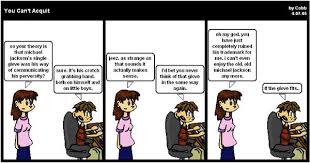中文词源
acquit 宣判无罪
前缀ac-同ad-, 去,往。quit, 离开,词源同quiet。即无罪释放。
英语词源
- acquit
-
acquit: [13] Acquit is ultimately related to quiet. The Latin noun quies, from which we get quiet, was the basis of a probable verb *quietare, later *quitare, whose original meaning, ‘put to rest’, developed to ‘settle’, as in ‘settle a debt’. With the addition of the prefix ad- this passed into Old French as a(c)quiter, and thence into English (still with the ‘settling or discharging debts’ meaning). The currently most common sense, ‘declare not guilty’, did not appear until the 14th century, and the most recent meaning, ‘conduct oneself in a particular way’, developed from the notion of discharging one’s duties.
=> quiet - acquit (v.)
- early 13c., "to satisfy a debt" (either for oneself or on behalf of another), from Old French aquiter "pay, pay up, settle a claim" (12c.), from a "to" (see ad-) + quite "free, clear" (see quit (adj.)). Meanings "set free from charges" and "to discharge one's duty" both recorded from late 14c. Related: Acquitted; acquitting.
权威例句
- 1. I do not pretend tha t my protestations should acquit me.
- 我并不自称我的辩护一定能使自己无罪获释.
- 2. I acquit Edward of all essential misconduct.
- 我原谅爱德华的所有根本过错.
- 3. That fact decided the judge to acquit him.
- 那个事实使法官判他无罪.
- 4. I felt a considerable extension of power and authority, and was anxious to acquit myself creditably.
- 我感到自己的力量和权力都大大地扩大了, 而且急切地想表现得让别人信得过.
- 5. The judge directed the jury to acquit all the defendants.
- 法官指示陪审团裁定所有被告无罪.

